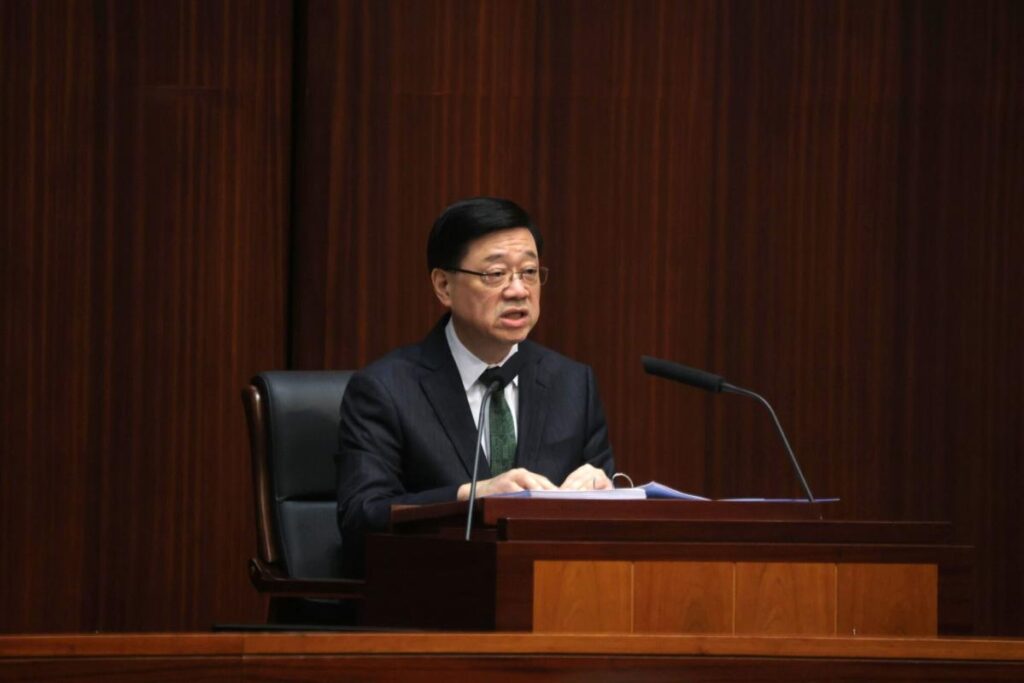(Bloomberg) — Hong Kong eased its mortgage rules to allow homebuyers to fork out lower downpayment, aiming to address a prolonged property slump in the city.
Most Read from Bloomberg
The loan-to-value (LTV) ratio for all residential properties will be set at 70%, Chief Executive John Lee said in his policy address on Wednesday. The change will reduce the required downpayment for homes valued above HK$35 million ($4.5 million) which had a ratio of 60% previously. The LTV ratio for company-held properties will also rise to 70% from 60%.
The measures will take effect today, the Hong Kong Monetary Authority said in a statement. Citing the softening property market in recent months, HKMA said “there is room to further adjust” the measures.
The city’s New Capital Investment Entrant Scheme will also be expanded to accept investment in homes at HK$50 million or above as qualified investments, with the amount of real estate investment to be counted towards the total capital investment capped at HK$10 million, Lee said.
Hong Kong’s Hang Seng Property Index rose as much as 3.9% following the announcement of the measures, outperforming the main Hang Seng Index.
The moves mark the latest attempt by the Hong Kong government to perk up its property market. But the changes pale in comparison with last year’s when it slashed extra stamp duties for some homebuyers.
The city’s real estate market continues to be pressured by high borrowing costs, a glut of home inventory and a weak economy. However, the lack of stimulus for the industry from the government shows that the administration has few options to boost the market after having removed all extra property taxes earlier this year.
Thomas Chak, head of capital markets & investment services at Colliers International, said the new home investment policy will help attract high networth individuals to the city and boost transaction volume in luxury properties, but will have limited impact on the general residential market.
The recent reduction in interest rates in Hong Kong hasn’t translated into a market rebound. Developers are still pricing their projects modestly to absorb as much demand as possible amid an oversupply of homes. Used-home values are even lower than the level before the banks’ rate cut in September.
With housing inventory elevated, residential prices will likely remain under pressure in the near term despite the lower rates, according to Bank of America Corp. The backlog for unsold residential properties is at a 20-year high, data from Bloomberg Intelligence show.
–With assistance from Kiuyan Wong and Shirley Zhao.
(Adds comments from HKMA and Colliers and property index reaction from third paragraph.)
Most Read from Bloomberg Businessweek
©2024 Bloomberg L.P.
Read the full article here

